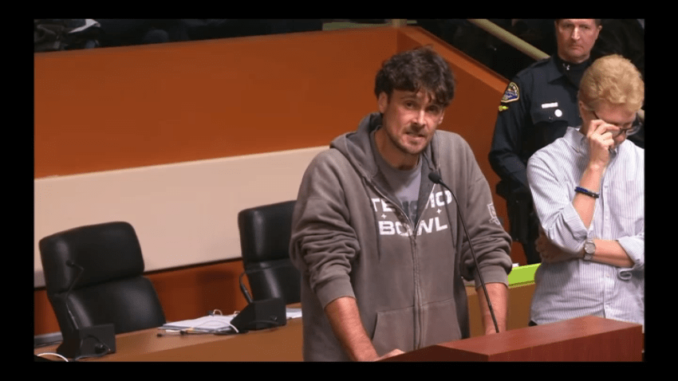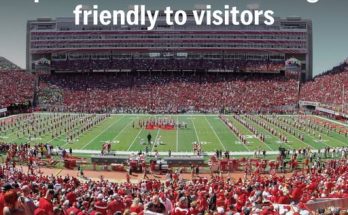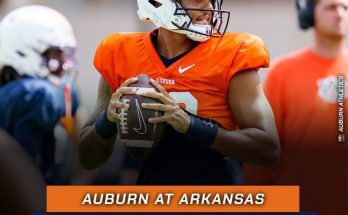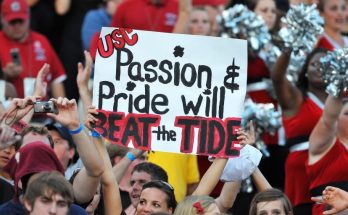In a dramatic turn of events at a Huntington Beach City Council meeting on February 18, 2025, former NFL punter and UCLA alumnus Chris Kluwe was arrested following a passionate protest against the installation of a controversial plaque bearing the acronym “MAGA” at the city’s central library. Kluwe, known for his outspoken activism on social issues, vehemently criticized the plaque, equating the “Make America Great Again” movement to Nazism and expressing deep concerns over its implications.AS.com+7The Sun+7People+7ABC7
The Controversial Plaque
The plaque in question was intended to commemorate the 50th anniversary of the Huntington Beach Central Library. Designed with the acronym “MAGA,” it aimed to highlight qualities such as “Magical,” “Alluring,” “Galvanizing,” and “Adventurous.” However, the unmistakable association with former President Donald Trump’s campaign slogan ignited a firestorm of controversy within the community. Many residents perceived the plaque as a politicized statement, inappropriate for a public institution like a library.AS.com+2The Sun+2New York Post+2
Emails from concerned citizens flooded the city council, labeling the plaque as political propaganda and accusing it of injecting partisan ideology into a space meant for learning and inclusivity. The council’s decision to approve the plaque, despite public outcry, further polarized the community and set the stage for the events that unfolded during the meeting.The Sun
Chris Kluwe’s Protest
Chris Kluwe, 43, who spent seven seasons with the Minnesota Vikings before retiring in 2014, has a well-documented history of leveraging his platform to advocate for social justice causes, including LGBTQ+ rights and marriage equality. His activism has often placed him at odds with conservative viewpoints, making him a prominent figure in debates over free speech and civil rights.The Guardian+1People+1The Guardian+1
During the city council meeting, Kluwe delivered an impassioned speech condemning the plaque and the ideologies he believes it represents. He articulated his concerns, stating that the MAGA movement has been associated with attempts to suppress transgender individuals, reintroduce racial segregation, and censor literature. Kluwe did not mince words, referring to the movement as “explicitly Nazi” and expressing alarm over its growing influence in local governance.Wikipedia+3New York Post+3New York Post+3The Sun+4AS.com+4The Guardian+4
Following his allotted speaking time, Kluwe announced his intention to engage in an act of peaceful civil disobedience. He approached the council members, intending to make a symbolic stand against the plaque’s installation. However, before he could reach the dais, law enforcement officers intervened, restraining and escorting him out of the chambers. Kluwe was subsequently charged with disrupting an assembly and was detained for approximately four hours before being released later that evening.WikipediaPeople+1The Sun+1People+1
Reactions from the City Council and Community
The Huntington Beach City Council, which had recently shifted to a Republican supermajority—self-dubbed the “MAGA-nificent 7″—following the December 2024 elections, responded critically to Kluwe’s protest. Council members argued that his actions caused unnecessary alarm among attendees and disrupted the proceedings. Mayor Pat Burns, a former law enforcement officer and the architect of the city’s recent declaration as a “non-sanctuary” city, emphasized the importance of maintaining order during public meetings and expressed disapproval of Kluwe’s methods.SFGATEThe GuardianHuntington Beach+3Yahoo+3Orange County Tribune+3
The community’s response was deeply divided. Supporters of Kluwe praised his courage to speak out against what they perceive as the normalization of extremist ideologies in public spaces. They argue that the plaque’s presence in a public library is a tacit endorsement of a political movement that has marginalized various groups. Opponents, however, viewed Kluwe’s protest as an unnecessary escalation, asserting that the plaque was intended to celebrate the library’s milestone and that its interpretation as a political symbol was subjective.New York PostThe Sun
Historical Context and Broader Implications
Huntington Beach, a coastal city in Southern California, has a history of political activism and occasional unrest. The recent shift in the city council’s composition reflects a broader trend of conservative resurgence in certain local governments, even within traditionally liberal states like California. The council’s unanimous vote to designate Huntington Beach as a “non-sanctuary” city in January 2025 underscored this ideological shift, signaling a commitment to cooperate with federal immigration authorities and a departure from the state’s more progressive policies.Newsweek+1Yahoo+1Newsweek+1
The incident involving Kluwe highlights the escalating tensions between differing political ideologies at the local level. It raises critical questions about the role of public spaces and institutions in political discourse and the extent to which they should reflect or remain neutral on contentious issues. The decision to install a plaque with such loaded symbolism in a public library—a place traditionally viewed as a bastion of knowledge and neutrality—has sparked a debate about the politicization of communal spaces and the potential alienation of community members with differing views.
Chris Kluwe’s Activism and Its Impact
Chris Kluwe’s activism is not a recent development. During his tenure in the NFL, he was known for his outspoken support of marriage equality and LGBTQ+ rights. In 2012, he penned a candid letter defending a fellow player’s right to support same-sex marriage, which garnered widespread attention and solidified his reputation as a socially conscious athlete. Kluwe has consistently used his platform to challenge what he perceives as injustices, often at personal and professional risk.The Guardian
His protest at the Huntington Beach City Council meeting is a continuation of his commitment to civil rights and social justice. By taking a stand against the plaque, Kluwe aimed to draw attention to what he views as the encroachment of divisive political ideologies into public institutions. His arrest has amplified the conversation, prompting both local and national discussions about the responsibilities of public figures, the boundaries of protest, and the role of civic spaces in political expression.
Legal and Social Ramifications
Legally, Kluwe faces charges of disrupting an assembly, a misdemeanor that could result in fines or further legal action. His arrest raises important questions about the limits of free speech and the legal boundaries of protest within governmental settings. While public meetings are designed to encourage citizen participation, there are established protocols to maintain order. Kluwe’s decision to engage in civil disobedience tests



